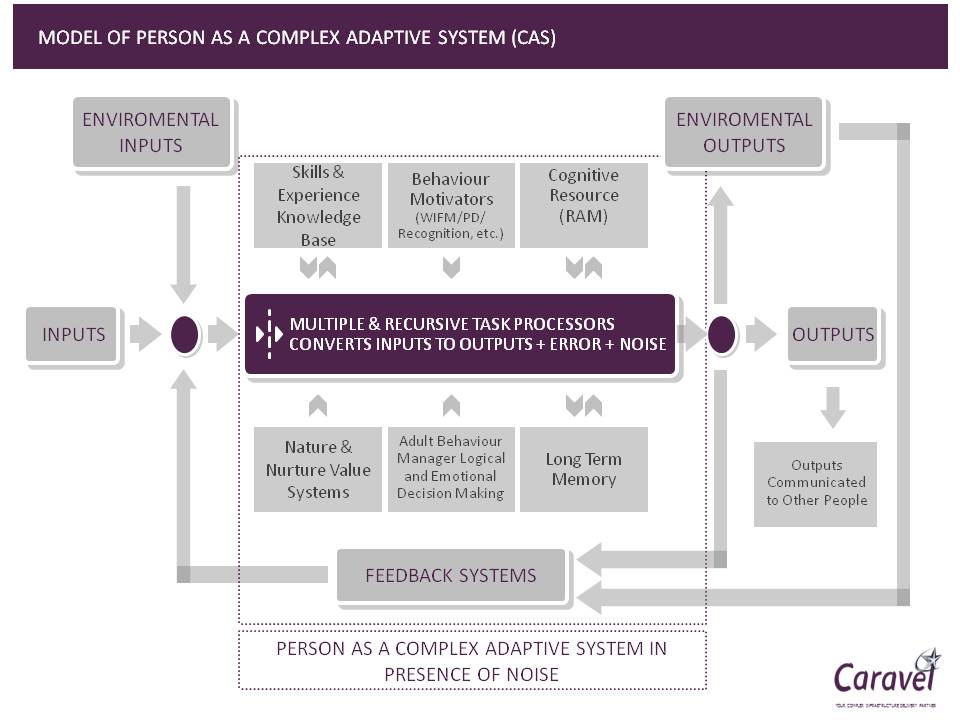Complexity Theory and Project Delivery
Conventional management techniques struggle to keep up when complexity increases even marginally; this often results in blown budgets, missed schedules and angry management or customers – but why?
Often, the answer lies in the often-misunderstood concept of complexity itself.
“Complex systems are prone to surprising, large-scale and seemingly uncontrollable behaviours.”
Complexity: more than just complicated
It’s easy to confuse “complex” with “complicated” – the terms are often used interchangeably, though they actually mean very different things.

Complicated systems (projects or programs) are usually large and have lots of ‘moving parts’ that interact with one another, but those interactions are generally fairly simple (‘linear’) and predictable. There may be many, many pieces to the puzzle and many interactions between them, but they all behave in relatively straightforward ways.
Complicated programs can generally be broken down into components (or sub-projects) and the inter-dependencies resolved one-by-one to create a manageable portfolio. Even if there are many parts, the whole result is just the sum of the results of each of those many parts.
 Complex systems (projects or programs) involve elements that interact with each other in more complex ways (‘nonlinear’, feedback loops and similar) with outcomes that can’t be reasonably predicted, even with an understanding of each of the parts.
Complex systems (projects or programs) involve elements that interact with each other in more complex ways (‘nonlinear’, feedback loops and similar) with outcomes that can’t be reasonably predicted, even with an understanding of each of the parts.
Combining the parts of a complex program isn’t enough to predict how the whole system will behave in practice, and you can’t break it down to manage the constituent parts separately either.
Complexity Science is about understanding and managing these ’emergent behaviours’ – how the whole system acts, that’s different from the ‘sum of the parts’ prediction.
“Even small and unpredictable changes can cause tremendous problems when you’re managing a complex system.”
DeliverMyStrategy embraces the science of complexity, which provides a growing body of knowledge about the structure, behaviour and dynamics of change in complex systems. It offers insight into why projects fail and provides a framework for addressing the issues.
A key understanding is that complexity cannot be cured – we need to manage effectively in the uncertain environment created by complexity, and deliver the results we need despite our uncertain knowledge.
Complex Adaptive Systems
Complex programs and projects show similar properties (from this perspective, at least) to people and other living things, acting as “complex adaptive systems”:
- They interact in rich and complicated ways that are difficult to predict, and can change
- They can operate under unexpected and far-from-equilibrium conditions – outside ‘their comfort zones,’ and
- Their actions depend on all of their history, not just their situation right now.
In some ways, parts of your program can ‘take on a life of their own,’ and become as tricky to manage as the most difficult staff member. This may start to explain how complex programs can get so easily out of control, and how often they fail to reach their original goals.
Managing in a Complex and Uncertain Environment
Over decades managing complex infrastructure projects, and more recently applying the results of research, Caravel Group have found ways to control and manage many problems that develop in complex projects. The DeliverMyStrategy methodology was developed to systematise these solutions for our own use, and has now been implemented in software to help others use these methods as well.
“By understanding and adapting to internal and external changes, it’s possible to thrive in an environment in which unanticipated events will certainly occur.”
Applied Complexity Sciences in Australia
Aspects of complexity have been recognised by the International Centre for Complex Project Management, with the active involvement of Australian partner organisations. To date, however, this work has focused primarily on the leadership required in complex environments, leaving those leaders to battle their complex programs with few tools or supports.
Complexity theory has been around for more than 50 years but only recently have we been able to apply it successfully to create effective tools for complex project delivery. More entrenched commercial software products will take some time to catch up.
DeliverMyStrategy now provides a commercial, business solution to managing delivery in complex, uncertain and ambiguous environments, which has been demonstrated to raise delivery success rates from 50% to 80% – today.
DeliverMyStrategy is a practical embodiment of the latest research, packed up for delivery by experts who’ve done it before – and can do it again, for your firm.
Contact us directly, to find out more…use the Contact Form, email or ring directly, or read more about how we can help:

